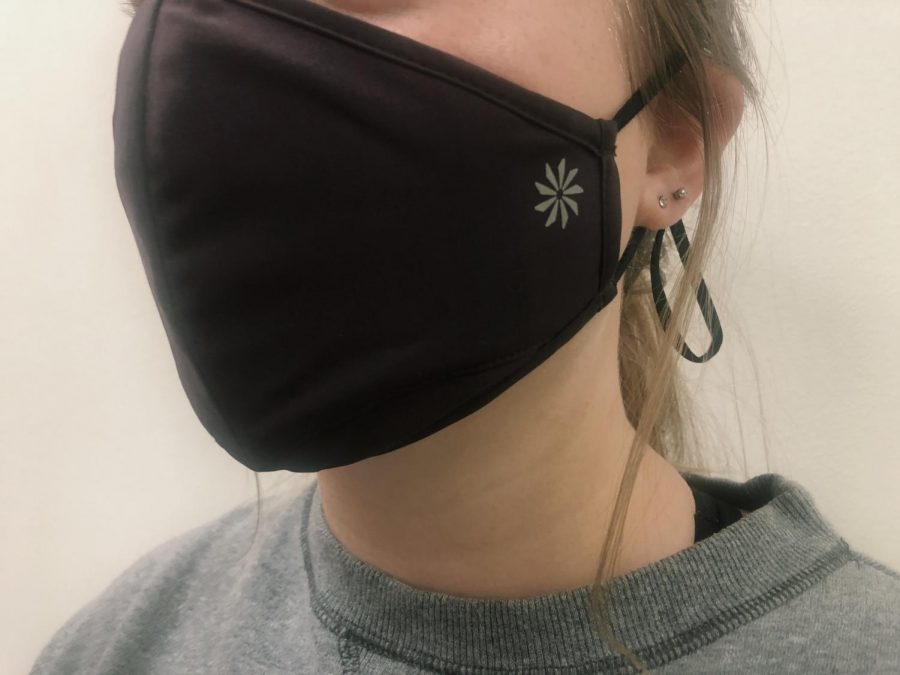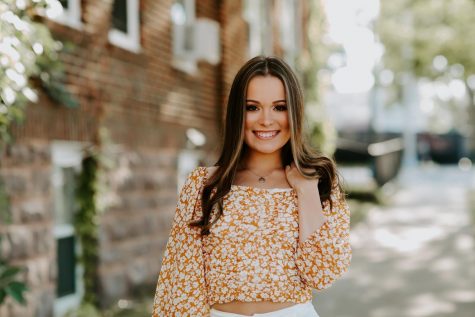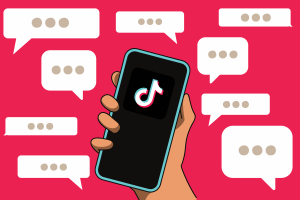The increased importance of wearing a mask with quarantine policy change
With the district-wide quarantine policy change, it is necessary to cover the mouth AND nose with a mask.
October 16, 2020
Although it is understandable that wearing a mask can feel uncomfortable at times, it is necessary to stop the spread of COVID-19. The mouth AND nose must be covered as the virus can be spread through respiratory droplets when people speak, sneeze, cough and even breathe. Masks serve as an effective barrier against these droplets, which is why they are so critical. Cells that line the nose are significantly more likely to become infected and shed virus compared to the throat and lungs, so leaving the nose uncovered defeats the purpose of wearing a mask.
“We are not defenseless against COVID-19,” said CDC Director Dr. Robert R. Redfield. “Cloth face coverings are one of the most powerful weapons we have to slow and stop the spread of the virus – particularly when used universally within a community setting. All Americans have a responsibility to protect themselves, their families and their communities.”
COVID-19 can be spread by people who do not have symptoms and do not know that they are infected, so it is essential that everyone wears a mask in public areas, such as school. UC Davis’ research shows that about 30 percent of infections are caused by people who do not know they have COVID-19 because they are asymptomatic. While face coverings are effective as a source control to prevent spreading the virus, there is evidence that they protect people who do not have the virus as well. According to Dean Blumberg, the chief of pediatric infectious diseases at UC Davis Children’s Hospital, the risk of infection to the wearer is decreased by 65 percent. The scientific evidence is clear and it continues to support the fundamental methods to prevent spreading COVID-19.
“Everyone should wear a mask,” said Blumberg. “People who say, ‘I don’t believe masks work’, are ignoring scientific evidence. It’s not a belief system. It’s like saying, ‘I don’t believe in gravity.’”
Wearing a mask is not something that should be made political; it is just a sign of personal responsibility and respect for the community. Not only does it reduce the transmission of the virus to people that one comes into contact with, but all the people that they will have contact with as well.
With the recent change to the initial Sioux Falls Return to Learn plan, the use of masks is as important as ever. Members of the school board voted to amend the COVID-19 close contacts policy, reducing the restrictions. This is because a very low percentage of staff and students have tested positive in the district (below 1%), and over 1,000 students were quarantined because of close-contacts. The district, and some parents, wanted to reduce the stress on students of missing school and falling behind in classes. Students in quarantine are unable to take tests, complete science labs and give presentations, which are a significant part of a student’s grade.
Currently, masks are only “expected”, but they are not required. However, the effectiveness of this new plan is dependent on the wide use of masks. If a student or teacher tests positive for COVID-19, their close contacts may stay in school as long as everyone was wearing a mask. If an unmasked student tests positive, then all of their close contacts, regardless if they were masked or not, need to quarantine. Unfortunately, this has already happened at LHS: an unmasked student tested positive and all of their close contacts were quarantined. This seems to be very unfair – because one student chose not to wear a mask, the close contacts were affected negatively. Not only do they have to deal with the stress of online school, but they are also at risk of catching the virus and spreading it to family members. Of course, there are exceptions for those with actual medical and educational needs, but there is no excuse for anyone else to not wear a mask. It is each student’s and faculty member’s right to be protected against COVID-19, like Bloomberg stated, it is not a “belief system”, but common decency.









